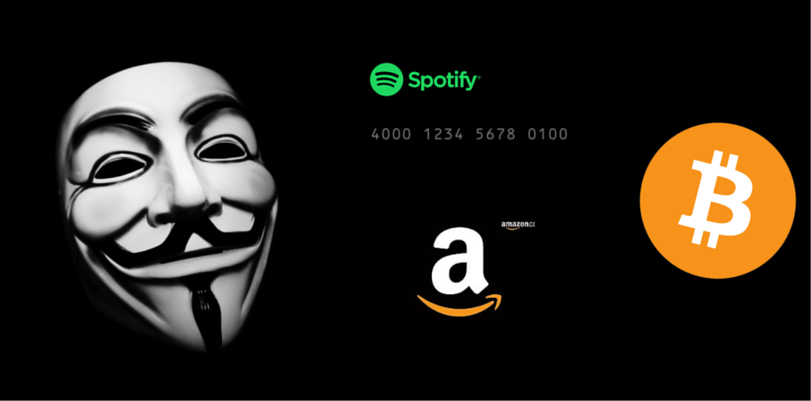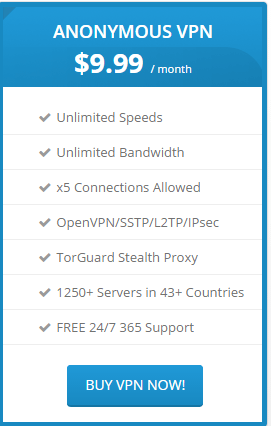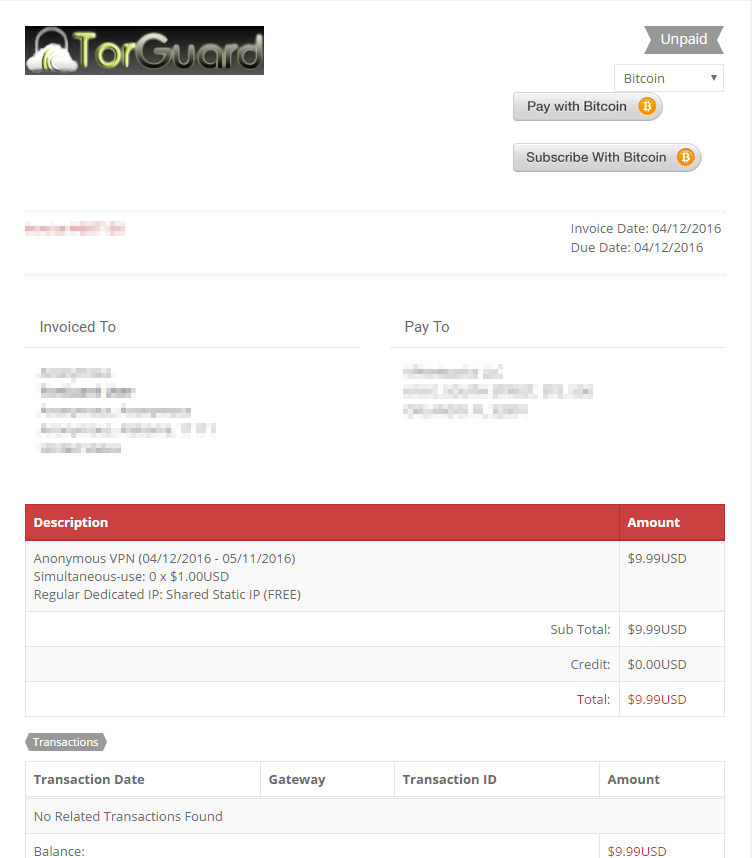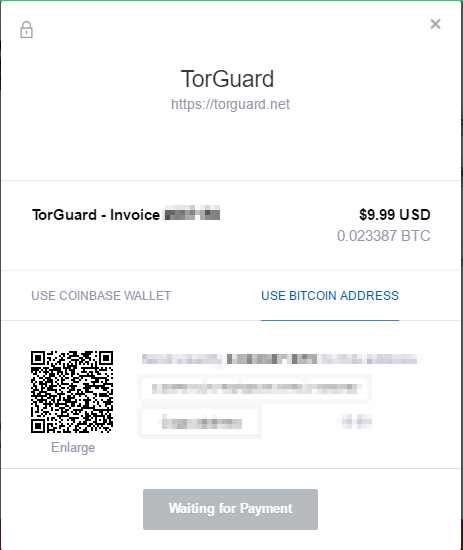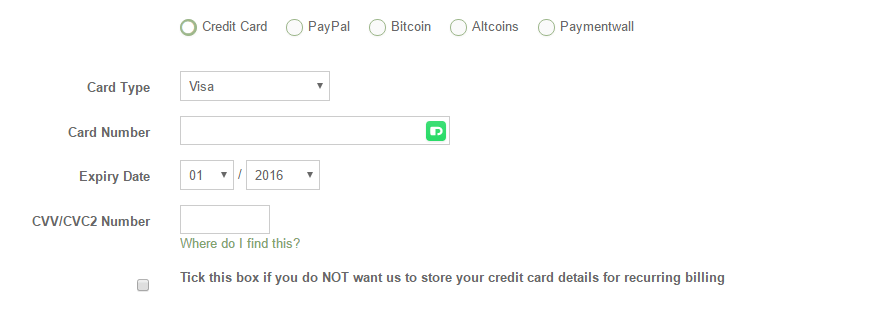One of the main reasons to use a VPN is to make your internet activity private and secure. However, to get to that point, you’re going to have to invest a little bit of dough to ensure you have maximum anonymity. One good way to start that early is to for a VPN anonymously.
Some people don’t mind using a credit card or PayPal, but depending on if you’re lazy, or just a bit paranoid, there are actually ways that are not only incredibly easy but also very secure. In this detailed guide, we will show you how to pay for a VPN anonymously in 2017 with some updated methods not seen anywhere else!
IMPORTANT:
Do you have a large amount of Bitcoin? Consider storing it in a Bitcoin hardware wallet like KeepKey.
In this guide we will show you:
1. Why You Should Pay for a VPN Anonymously
2. Overview of Different Methods to Pay for a VPN Anonymously
3. How to Pay for a VPN with BitCoin
4. How to Pay for a VPN Using Gift Cards
5. How to Pay for a VPN with a Digital Debit Card
6. How to Hide your IP Address While Purchasing a VPN
Do I need to Pay for a VPN Anonymously?
When you pay for a VPN with a debit card of PayPal, you have to give up some information to ensure that there isn’t any fraud going on. One time on Reddit, I saw a user complaining that they had to give their billing address when paying with a debit card. But in reality, these companies HAVE to do this. These anti-fraud measures aren’t there for fun, or to store your information, but instead to verify that the card and information are being used by the owner and not someone else.
This debit card information is usually stored by the payment processing company, but the information can be linked back to your account. The same applies to Paypal as well, which could technically provide a link that could be traced back to you. However, if you’re using a no-log VPN, then there is NO link between your VPN activity and your personal account information anyway.
So the bottom line is that you are most likely OK to use a debit card or PayPal when using your VPN, but not all VPNs are created equal. Some VPNs do keep logs (peruse this chart if you want to know if yours does) and some people just don’t simply like to give up information they don’t have to–that could theoretically provide a link that could be traced.
Keeping that in mind, there are some people who would definitely benefit from paying for a VPN anonymously:
- Journalist
While not as much of an issue in uncensored countries, countries like China, or middle eastern countries like Iran, or Russia, have been known to persecute journalists that are spreading information that is against the law. Or, this could be information the government simply doesn’t like. In some places, laws against journalists are very harsh. Paying for a VPN anonymously, in this case, would be a great idea.
- Whistle Blower
Whistle Blowers might want to protect every inch of their internet privacy after exposing information meant to be kept secret. Most spy agencies are VERY powerful and have the capability to go after people who they deem dangerous to national security.
- Activist
In the same category, an activist might either be a journalist or a whistleblower, or just someone online who is talking about controversial topics on Twitter in the wrong country. Some countries have strict laws that are very easy for internet activists to break.
While paying for a VPN anonymously has many benefits, you can’t set up recurring payments (however, we discovered–with TorGuard VPN you actually can). However, this is also an advantage if you don’t want to be billed over and over since some VPN providers purposely make it hard to cancel their service.
One of the best methods if you’re paying anonymously is to purchase longer subscriptions. Paying this way can be risky if you’re not sure if you like your VPN (that’s why we made this site–you can trust our reviews since we are often very picky). For example, for one month, TorGuard VPN is $9.99–but for 6 months, TorGuard is only $29.99. This is 50% off a regular month by month plan for 6 months.
Overview of Methods to Pay for a VPN Anonymously
In order to truly pay for a VPN service anonymously, you need to use payments which are untraceable.
1.Cryptocurrency
Cryptocurrency is one of the most popular ways to pay for a VPN. It can be a bit tricky to understand how it works, but check out this guide and you should be ready. Cryptocurrency comes in the form of payment options like BitCoin, Altcoin, and Litecoin. BitCoin is the most popular cryptocurrency and most VPN providers accept it. For a full list of which VPNs accept BitCoin, check out this article.
Pros
- It’s very easy to pay with BitCoin, often easier than having to type in information for your card or PayPal
- Very anonymous
- BitCoin can be good to invest in since the value often rises with interest
- Easy to move your money around with low fees
- Exchange rate is very good
Cons
- Sometimes VPN providers don’t like to give refunds for BitCoin
- Some VPN providers don’t accept BitCoin
- There’s a learning curve to BitCoin and cryptocurrency in general
2.Store Gift Cards
Did you know that you can use store bought gift cards to pay for a VPN? Say your grandma bought a gift card for you with cash, or you buy one for yourself with cash. There’s no way to trace who bought the card when you turn that digital currency into a payment for your VPN provider. In a sense, paying with a store bought gift card is almost like giving your VPN provider cash as payment.
Pros
- Very anonymous
- No learning curve
- Can buy with cash
Cons
- If you don’t have a gift card laying around,
it means a trip to local grocery store(you can buy gift cards online too!) - VPN provider might charge more
- Only a few VPN providers accept gift cards (TorGuard and Private Internet Access)
3.Generated Debit card
This is our special find! Did you know that you can sign up to have digital debit cards connected to your bank account with privacy.com? All you have to do is connect your bank account, and then you can create debit cards (as many as you want) to pay for things online. Every single online store that accepts debit cards will accept these digital cards. The best part is you can cancel them to stop recurring subscriptions, and you don’t have to fish out your wallet.
Pros
- 256-bit AES encryption with your information
- Masks your payments with digital cards
- Extremely easy to use
- All VPN providers will accept debit transactions
- No fraud alerts
Cons
- Brand new service that most people don’t know about yet (see people talking about it here)
How to Pay for a VPN with BitCoin
In order to pay with Bitcoin, you’ll need a Bitcoin wallet and some Bitcoins. Check out some of the places you can buy Bitcoin in this guide. Coinbase (guide from them here) is a good place to start, and it has a great mobile app.
Here’s how purchasing a VPN subscription with Bitcoins works with TorGuard VPN (TorGuard also accepts Altcoins):
Click “Buy Now”.
Choose your preferred payment option and checkout.
Choose “Bitcoin” upon checkout.
From here either pick, “pay with Bitcoin” or “subscribe with BitCoin”.
Copy the BTC address, and enter it into your BTC wallet, or scan the QR code to process the payment.
Once you do this, there will be a payment confirmation, and you will receive information in an email.
How to Pay for a VPN with Gift Cards
There are only a few VPNs that accept gift cards as a payment option. In this example, we will how you how to pay Private Internet Access VPN with a gift card payment.
Scroll down on the payment page until you see a red “get VPN access” framed by “pay anonymously with gift cards”.
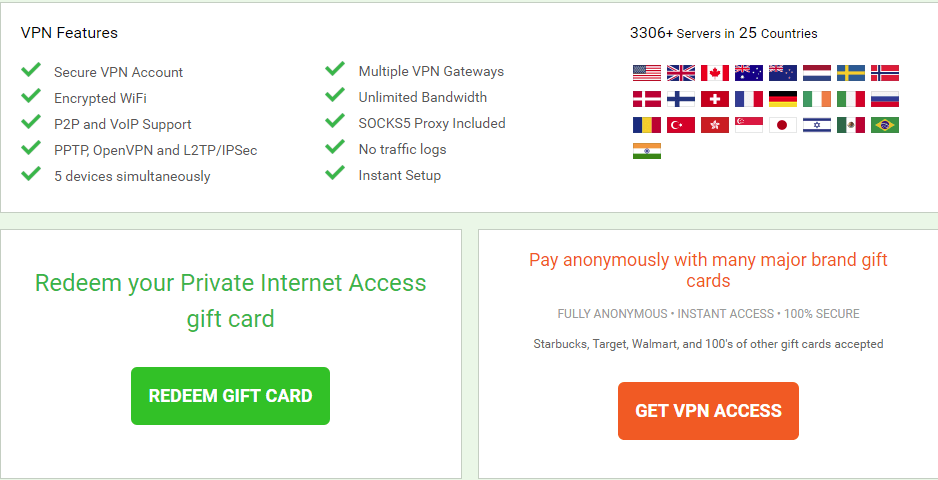
From here, you can pick your chosen gift card. There’s a ton of options! You can even buy one with instant email delivery.
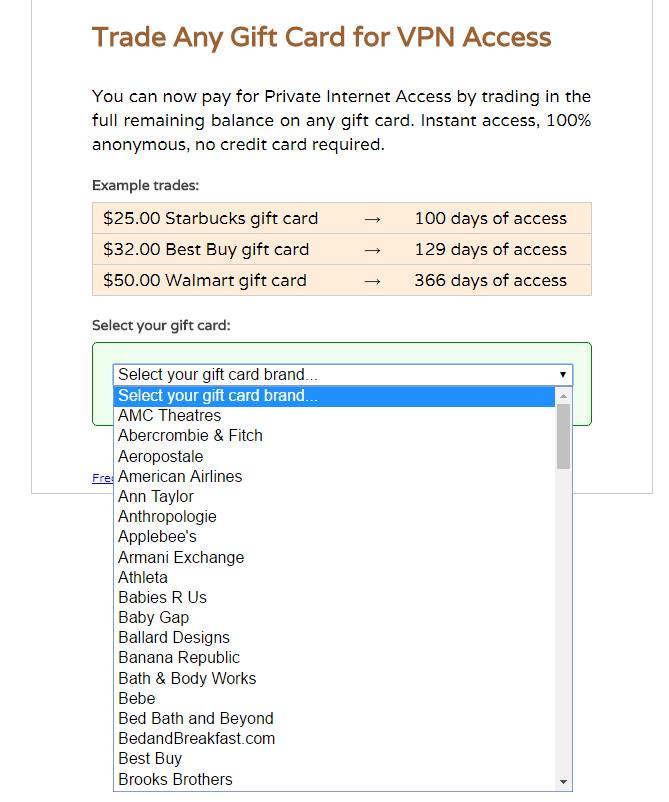
Then you just enter in your gift card information and check the balance. After this, you will see the exchange rate, and you just click “pay” to make the exchange. You will soon get an email confirmation with account details.
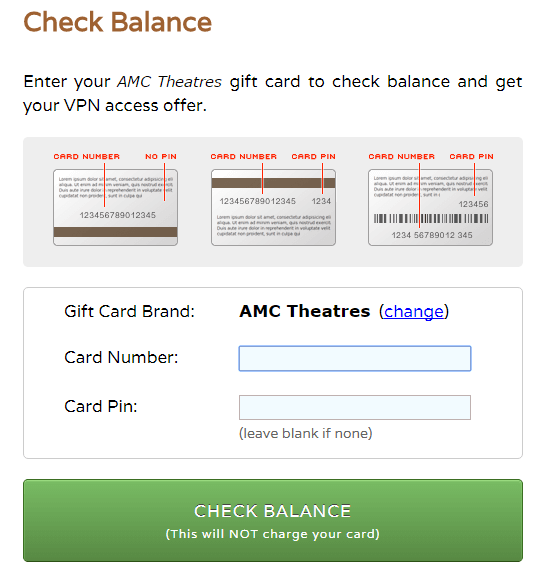
How to Pay for a VPN with a Digitally Generated Debit Card
While a new method to pay for VPN anonymously, this is also a very easy method and also a great way to pay for other online products and services. Privacy.com ensures that you have complete security with this method since it masks your identity with 256-bit AES encryption.
First, go to Privacy.com, then check out this slideshow explaining how to set up your account.
One you have your account setup go to your chosen VPN provider and checkout like you normally would with a debit card. Just “create your card” and copy paste the information in! You can make up an address as well as a billing name.
How to Hide Your IP Address While Buying a VPN
While we don’t normally recommend using public Wi-Fi at all (instead use a VPN at public Wi-Fi spots like Starbucks, McDonalds, Panera), these spots can be useful for paying for a VPN. Most VPN providers block proxies and VPN for payment. Instead, you can utilize a public IP.
If you use public Wi-Fi, your IP will be a public IP, not a private IP. Simply go to one of the previous locations listed, log into the Wi-Fi, and then purchase your VPN with an anonymous method while simultaneously hiding your normal IP by using a public IP.
Conclusion
It’s actually not that hard to pay for a VPN anonymously, so you mine as well do it! Here’s an overview of how to pay for a VPN anonymously in 2017:
- There are multiple methods including BitCoin (or other cryptocurrencies), GiftCard, or digital cards that you can use to pay for your VPN anonymously
- Use a valid email address when checking out to make sure you get your login details
- Don’t use a VPN or Proxy, instead hide your IP in a public Wi-Fi space to ensure your transaction can’t be traced to your local IP
Thanks for reading our guide on how to pay for a VPN anonymously in 2017. Leave us questions in the comments!
If you need help with Bitcoin, or just have questions about VPNs, come on over to our forums.
Other Useful articles:
- How to watch Netflix with a VPN
- 5 Fastest VPNs
- How to Speed up Torrenting
- 10 Common VPN Questions Answered
